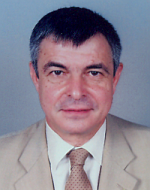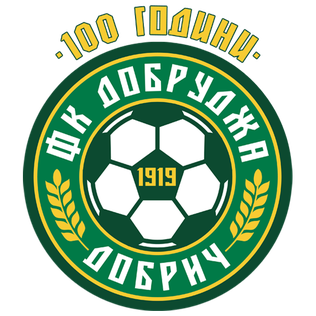Related Research Articles

Petar Stefanov Stoyanov is a Bulgarian statesman and politician who served as the 2nd President of Bulgaria from 1997 to 2002. A member of the Union of Democratic Forces, he won the second democratic election in modern Bulgarian history. Throughout Stoyanov’s presidency, Bulgaria made substantial progress in its efforts of joining NATO and the European Union.

Kimon Georgiev Stoyanov was a Bulgarian general who was the Prime Minister of the Kingdom of Bulgaria from 1934 to 1935 and again from 1944 to 1946. He was considered a "master in the art of coup d'etats."

The Union of Democratic Forces is a political party in Bulgaria, founded in 1989 as a union of several political organizations in opposition to the communist government. The Union was transformed into a single unified party with the same name. The SDS is a member of the European People's Party (EPP). In the 1990s the party had the largest membership in the country, with one million members, but has since splintered into a number of small parties totaling no more than 40,000 members. The SDS proper had 12,000 members in 2016.
Democrats for a Strong Bulgaria is a political party in Bulgaria established by former Bulgarian Prime Minister Ivan Kostov (1997–2001).
The history of Bulgaria from 1990 to the present is the period of Bulgarian history that begins after the fall of Communism and the transition to a market economy.

The Bulgaria men's national basketball team represents Bulgaria in international basketball. The governing body is the Bulgarian Basketball Federation.

Sofia University "St. Kliment Ohridski" is a public research university in Sofia, Bulgaria. It is the oldest institution of higher education in Bulgaria.

Stefan Antonov Sofiyanski is a Bulgarian politician who served as interim Prime Minister of Bulgaria in 1997 and was a three-term Mayor of Sofia. He was a leading member of the Union of Democratic Forces.

FC Dobrudzha is a Bulgarian football club based in Dobrich, that competes in the Second League, the second tier of Bulgarian football.
Nikolay Atanasov-Joko, also spelled Nikolai Atanasov, is a Bulgarian long jumper. His personal best jump is 8.31 metres, achieved in July 2003 in Pirgos.

Sporten klub Vladislav was a sports club from Varna, Bulgaria. During its history, Vladislav won the Bulgarian Football Championship three times. Vladislav's first title came at the inaugural championship in 1925 and its last was in 1934. Its official descendant by documents and history is Cherno More Varna.

The eighty-seventh cabinet of Bulgaria ruled from May 21, 1997 to July 24, 2001. The government was formed by the United Democratic Forces, an electoral alliance led by the Union of Democratic Forces, after they won a landslide victory in the 1997 parliamentary election winning 49.15% of the votes and 137 seats in the National Assembly. The cabinet was chaired by the UDF leader Ivan Kostov who shared the cabinet posts between his party and his allies. This was the largest margin of victory since the end of communism in 1990, to this day. Kostov's government was the first since 1990 to serve its entire four-year mandate.

Georgi Gervanov Ananiev was a Bulgarian politician who served as Minister of Defence in the Kostov government between 1997 and 1999.
Atanas Georgiev Semerdzhiev was a Bulgarian senior colonel, statesman and politician.
Events in the year 2001 in Bulgaria.

Atanas Petrov Atanasov is a Bulgarian politician who is currently serving as Member of the National Assembly. A member of the DSB party, which he also leads, Atansov previously served as Member of the Sofia City Council from 2011 to 2014 and Director of the State Agency for National Security from 1997 to 2001.
The 1990s in the People's Republic of Bulgaria and the Republic of Bulgaria.

Kalin Georgiev Stoyanov is a Bulgarian law enforcement worker and politician who was the Minister of Interior in the Denkov and First Glavchev Caretaker Government. A political independent, he has worked for the Ministry of Interior since 2003, holding the position of head of the General Directorate Combatting Organised Crime between 2021 and 2023.
References
- 1 2 3 4 5 6 Bogomil Bonev (Biography) (in Bulgarian) Archived August 24, 2011, at the Wayback Machine , Persons @ dir.bg. Retrieved at September 6, 2011
- ↑ Interview with Ivan Ivanov: DNA analysis are intentionally hindered (in Bulgarian), legalworld.bg
- ↑ John Handley, Bulgarian political development 1989–2003, Foreign Policy Research Institute
- ↑ Bulgaria Former Interior Minister Tipped for Plovdiv Fair Exec Job, Sofia News Agency, April 23, 2009. Retrieved at September 6, 2011.
- ↑ Bulgarian Ethno Diva Weds Former Minister in Secret, Sofia News Agency, July 1, 2006. Retrieved at September 6, 2011.